2025 Program Details
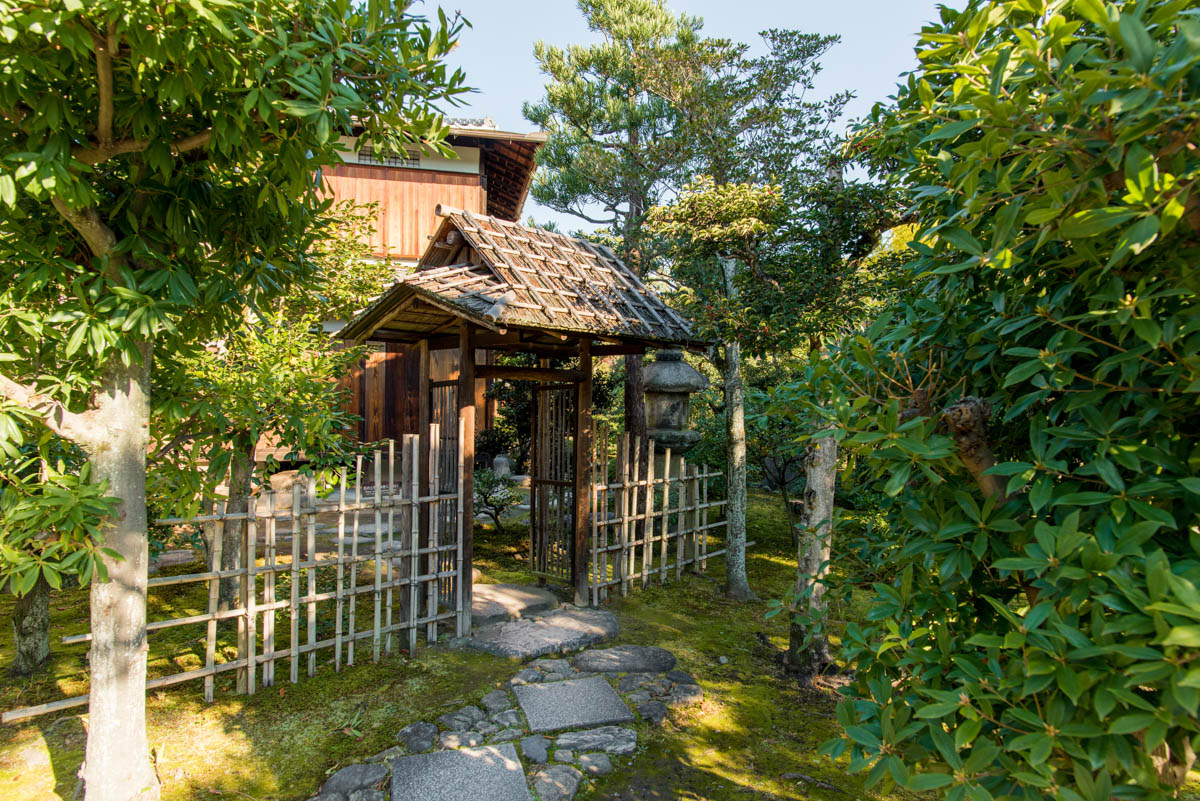
The Expression of Garden Space in Kyoto:
The Stagecraft of the Bamboo Fence
There are all kinds of Japanese gardens. In Kyoto, however, gardens are commonly created in relatively small spaces. These spaces are arranged not just as tea gardens and the dry landscape gardens of Buddhist temples, but even in “passage gardens” created in the smallest of corridors. Within these limits, how can we create a feeling of space? Answering this question requires a different perspective than that used for grand-scale garden design. In response, many approaches have been devised. Tree sizes that match the size of the space, see-through branches to express breadth and depth, stepping stones and garden pavements that evoke space by guiding guests’ footsteps. And then there are the many ways that spaces have been defined by how they are partitioned, as well as the vast range of “fences” introduced into them as garden accents.
Over this five-day program, we aim to give participants a grounding in the aesthetic sense lying in the background of Japanese garden beauty. On the morning of our first day, our company president Tomoki Kato, who is also a professor at Kyoto University of the Arts, will lecture on garden management and the relationship between Japanese gardens and their surrounding environments. In the afternoon, there will be a Japanese garden excursion illustrating how the bamboo fence has been used to express garden space in Kyoto.The second day will be dedicated to learning about the uses of bamboo materials in Kyoto at a bamboo specialist shop with 150 years of history. On the third day, participants will experience garden management training in how to nurture landscapes that incorporate their external scenery at a garden managed and fostered by Ueyakato Landscape.
After observing and training in Japanese gardens, the program’s last two days will focus on using bamboo fences to create an authentic Japanese tea garden space. With all instruction attended by veteran Japanese gardeners and interpreters who are fluent in the languages of Japanese, English and Japanese gardens, this course conveys to participants the tradition and aesthetic feeling of Japanese gardens nurtured in Kyoto.

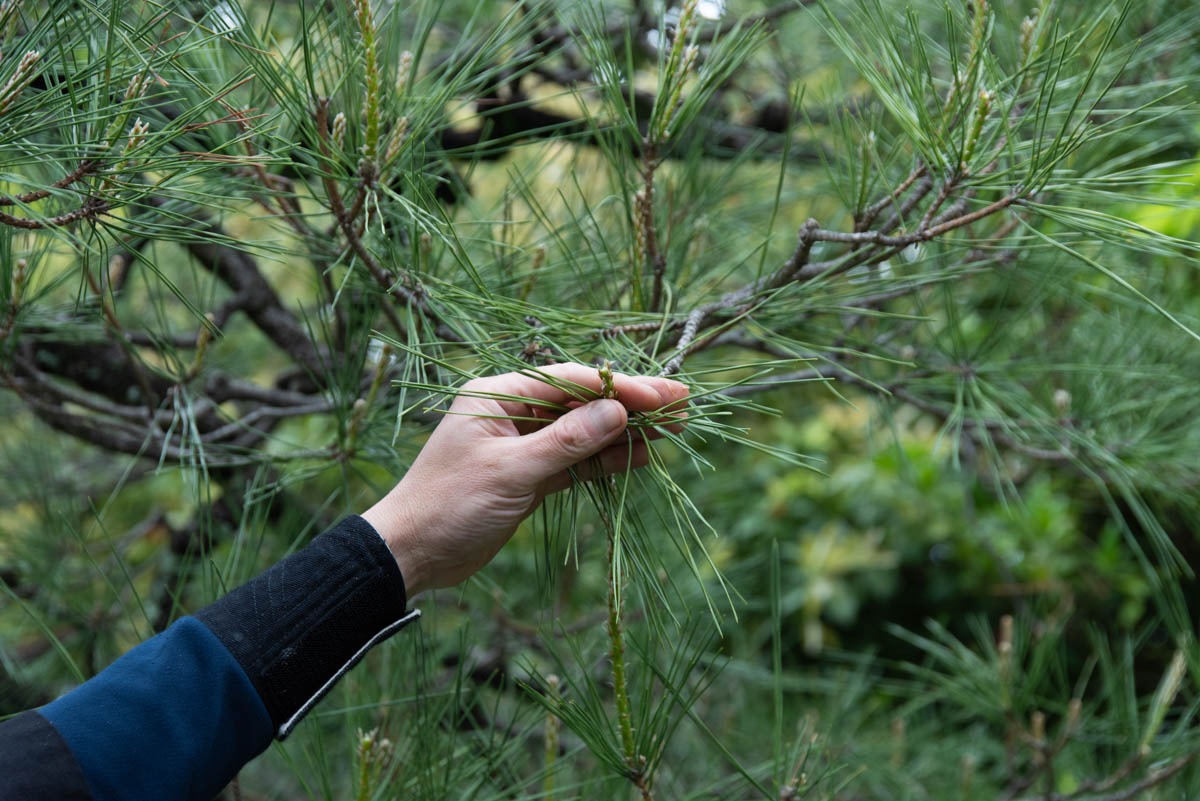

Application guidelines
- Schedule (tentative)
- April 14-18(Mon.-Fri.)
- Day 1
- AM Lecture (Lecturer: Tomoki Kato, Professor at Kyoto University of the Arts)
PM Garden excursions
Welcome lunch - Day 2
- Training at a traditional bamboo specialist shop
- Day 3
- AM Garden excursions
PM Garden management training (Traditional Japanese garden under Ueyakato Landscape management) - Day 4
- Garden creation training
- Day 5
- Garden creation training
Dinner party - Price:
- ¥1,000,000-(We offer financial assistance scholarships. For details see “Scholarship Program” below.)
*The above tuition covers the cost of tools, footwear, travel expenses and garden entry fees during training as well as lunchtime food and drink expenses, and a dinner party on the last day. Participants bear the cost of lodging expenses and travel expenses to Ueyakato Landscape. - Cancellation policy:
- A 100% cancellation fee will be incurred for any cancellations occurring after a final decision is made about whether to hold or cancel the event.
A 30% cancellation fee shall apply to any cancellations occurring after the application deadline. - Participants:
- 5 people. (3 person minimum)
*Applicants will be accepted in order of receipt. - Application deadline:
- January 17, 2025 (Mon.)9:00 JST
- Scholarship Program:
- Ueyakato Landscape will cover half of the training cost (¥500,000-) for applicants it deems capable of contributing to the future continuation and further evolution of Japanese garden culture. For details about our scholarship program please refer to “How to Apply.”
- Applicant selection:
- All applicants, including those not applying for our scholarship program, will be screened to ensure their participation goals match the goals of this program. Application screening will require 2-3 weeks.
- How to Apply:
- Fill the required items into the form below and submit your own resume. There is no required format for the resume, but please make sure to include the following information.
- Name
- Date of Birth
- Education Record, including higher education major
- Employment Record
- Reason for applying to this program(Maximum 1page)
*Above schedule is subject to change
Attention:
Enrollment for our 2025 Japanese Garden Training Program is now full.
However, we will continue accepting applications on a waitlist basis.
In the event of an opening for our program, we will contact waitlisted applicant in the order their application was received.
After receiving your application, we will make sure to reply to you within three weeks. In the unlikely event that you do not receive an email from us, please check the following.
- Are your email settings causing our email to land in your spam folder?
- Were there any mistakes in the email address you included in your application?
With apologies for any inconvenience, please use the inquiry form below if you do not hear from us within three weeks of your application.
Instructors
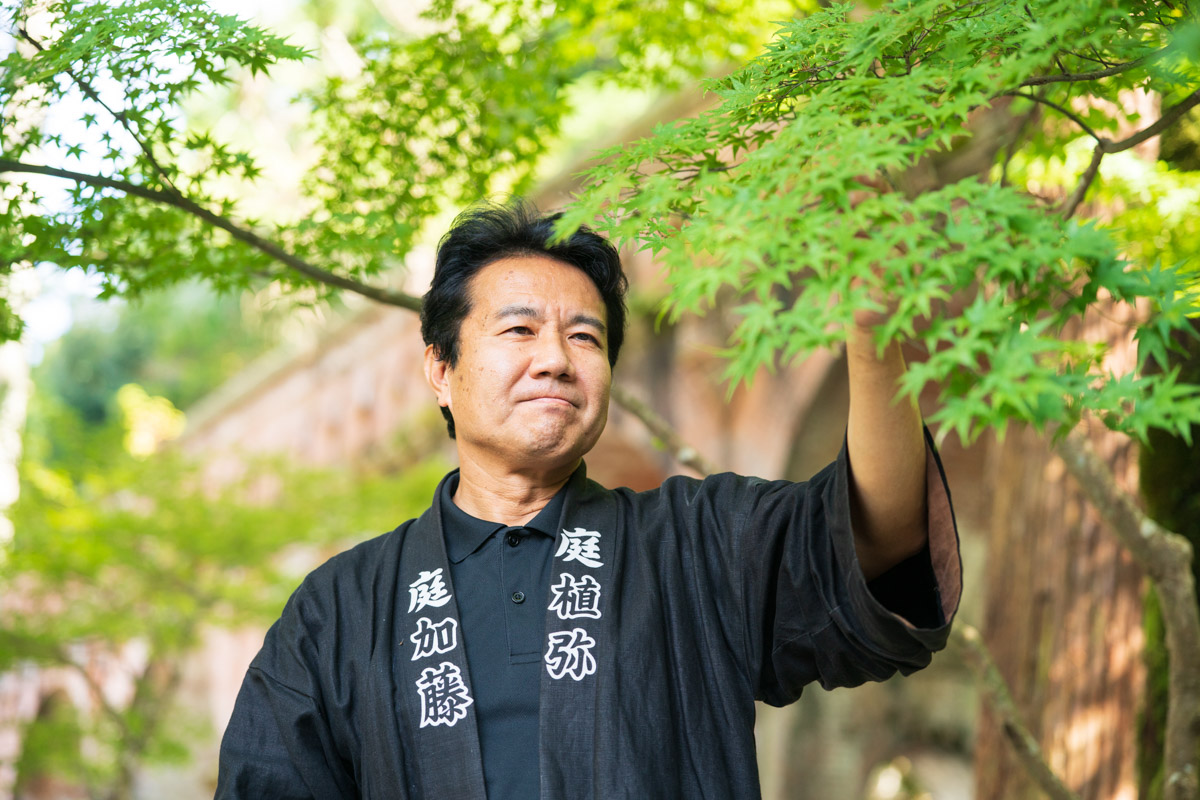
Tomoki KATO:
As Ueyakato Landscape company president and a professor at Kyoto University of the Arts, Tomoki Kato has been consistently committed to pursuing and promoting an active Japanese garden tradition based on solid skills, knowledge, and aesthetic taste. As a scholar, he conducts research grounded in practical learning that contributes to how Japanese gardens are both managed and enjoyed today. He gives frequent lectures both in Japan and abroad, including the 2014 and 2018 keynote speeches at the international conference of the North American Japanese Garden Association (NAJGA).
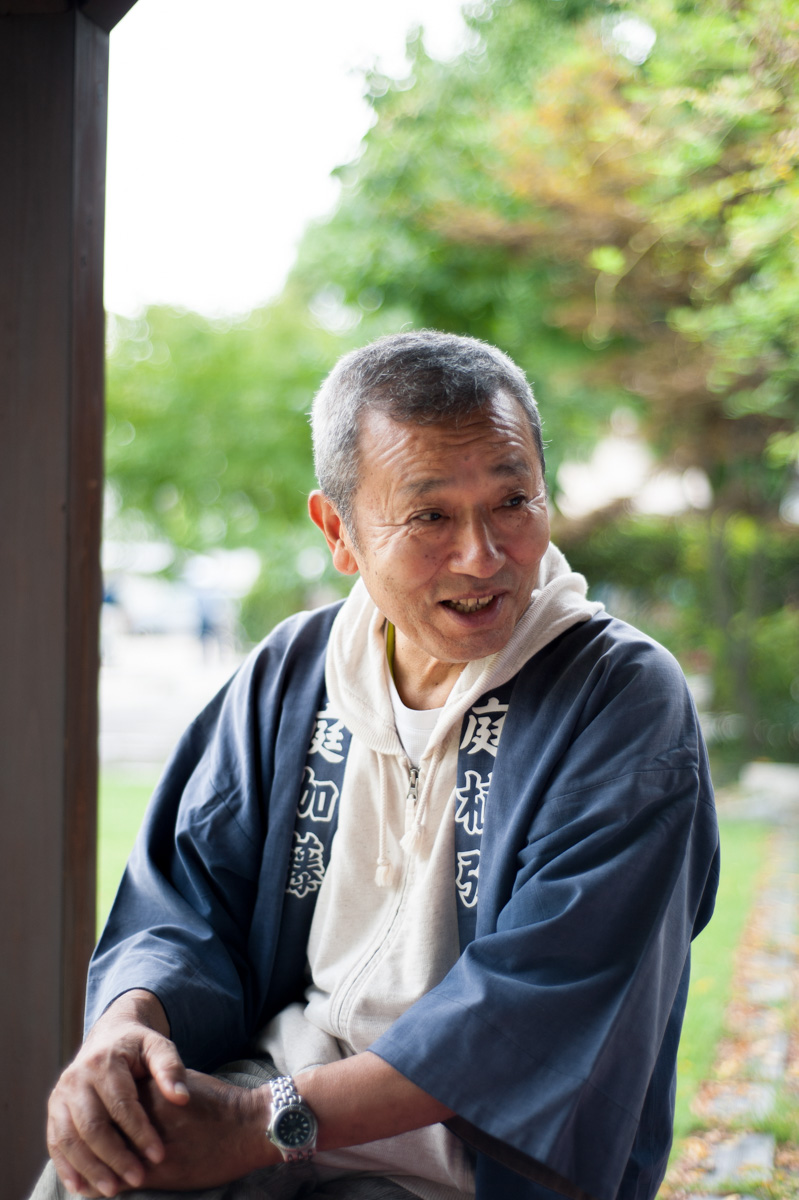
Sueo KATO:
The former president of the Council of Conservation Technicians for Cultural Property Gardens. Working for his family’s landscaping business since the age of 15, he has created and managed gardens for temples, private residences, and commercial facilities. He became a full member of the Council of Conservation Technicians for Cultural Property Gardens, the designated conservation techniques preservation group of Japan’s Agency for Cultural Affairs, when it was founded in 2002. He is involved in directing repair work for gardens that are cultural properties both in Kyoto and throughout Japan.
Graduated from Kyoto University of the Arts, Graduate School, majoring in Art and Environment in the field of Japanese Gardens.
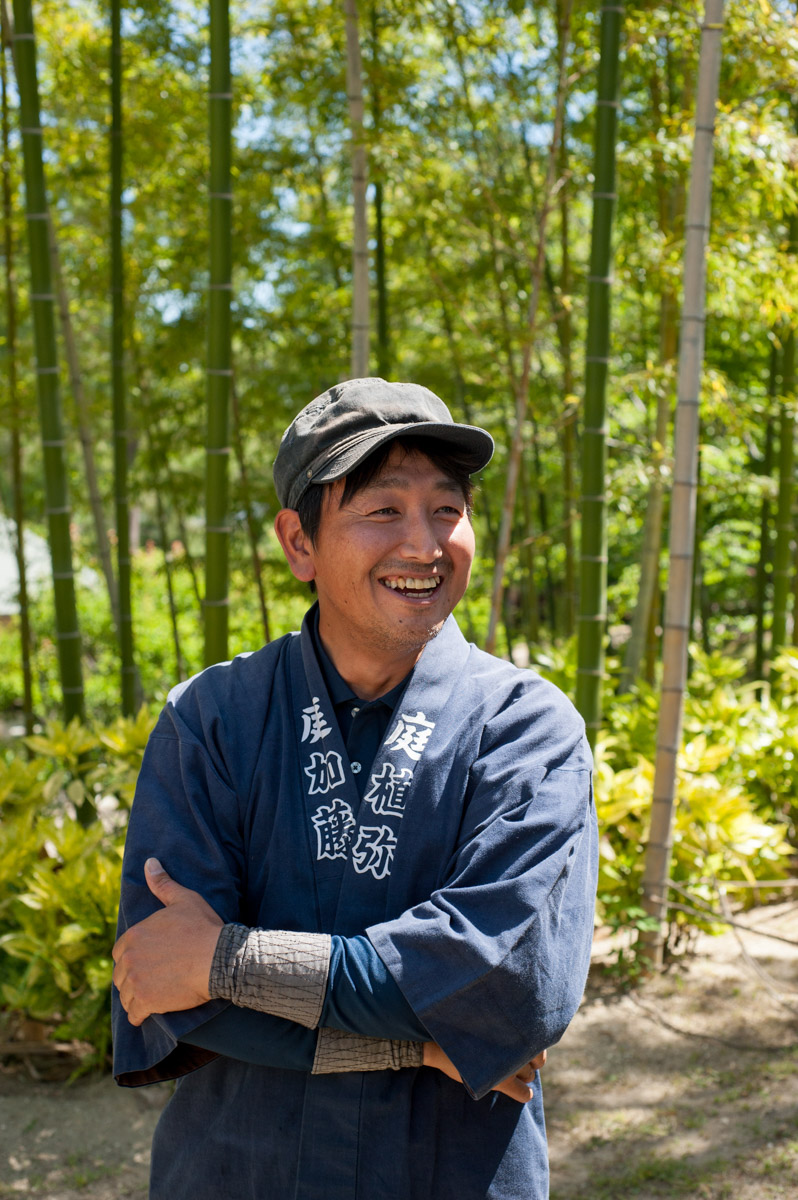
Tomohiko MUTO:
Ueyakato Landscape’s Tomohiko Muto has been head gardener for Keihanna Commemorative Park for ten years, where he applies traditional skills to fuse Japanese garden scenery with broader pastoral landscapes such as mountain forests and a natural pond. He is a veteran Japanese gardener who is equally experienced in the art of teaching. He has taught Japanese garden management and creation extensively to non-Japanese speaking students both in Japan and abroad and excels at explaining not only the techniques of Japanese gardens, but also the philosophy that underlies them.
Guest Instructor
CEO of Miki Chikuzai, Takashi MIKI:
Takashi Miki is the president of Miki Chikuzai, a bamboo materials company based in Kyoto. Miki Chikuzai has a long history as a specialist in bamboo materials, providing bamboo products for traditional architecture and landscaping, such as temples, tea rooms, and gardens. From a young age, Takashi Miki has been involved in the bamboo industry, where he has accumulated extensive expertise in bamboo products and sales through his family business.
Under his leadership, Miki Chikuzai continues to offer products and services that adapt traditional bamboo techniques to meet modern demands. His company is recognized both domestically and internationally for its high-quality products, contributing to the preservation and promotion of Japan’s cultural heritage.
For Ueyakato Landscape, Miki Chikuzai is an indispensable partner in both landscape creation and garden management, including our activities to preserve the historical heritage of Kyoto's temple gardens.

Some of our materials from past textbooks are available for purchase. Please contact us using the form below. Once we receive your contact information, we will send you an email explaining text chapters and their respective prices. We will then sell you only the data you have requested.
Thank you very much for your interest.
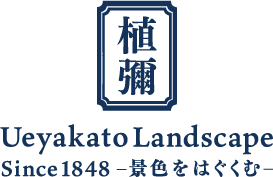
This program is organized by the Heritage and Garden Artistry Division of Ueyakato Landscape.
Please send all inquiries to the following email address.
Heritage and Garden Artistry Division
Ueyakato Landscape
email: chizai@ueyakato.co.jp
